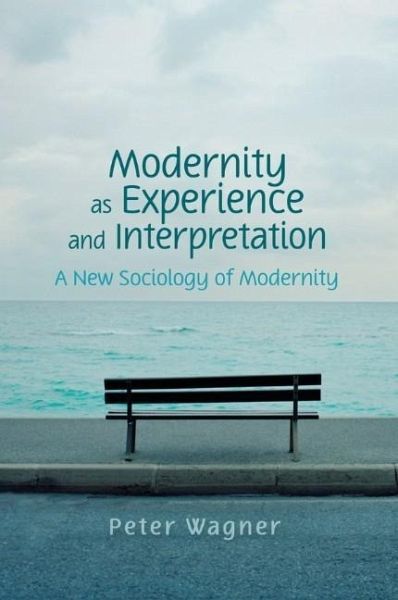
Modernity as Experience and Interpretation
A New Sociology of Modernity
Versandkostenfrei!
Versandfertig in über 4 Wochen
73,99 €
inkl. MwSt.
Weitere Ausgaben:

PAYBACK Punkte
37 °P sammeln!
We are all modern today. But modernity today is not what it used to be. Over the past few decades, modernity has been radically changed by globalization, individualization, new inequalities, and fundamentalism. A novel way of analysing contemporary societies is needed. This book proposes such an analysis. Every society seeks answers to certain basic questions: how to order life in common; how to satisfy human needs; how to establish knowledge. Sociology long assumed that the answers had been found once and for all: a liberal-democratic state, a market economy, and free scientific institutions....
We are all modern today. But modernity today is not what it used to be. Over the past few decades, modernity has been radically changed by globalization, individualization, new inequalities, and fundamentalism. A novel way of analysing contemporary societies is needed. This book proposes such an analysis. Every society seeks answers to certain basic questions: how to order life in common; how to satisfy human needs; how to establish knowledge. Sociology long assumed that the answers had been found once and for all: a liberal-democratic state, a market economy, and free scientific institutions. This trinity used to be called 'modern society'. By contrast, this book is based on the idea that, under conditions of modernity, there are no stable and certain answers to these questions. There is a plurality of possible answers, every proposed answer can be criticized and contested, and every society needs to find its answer on its own. This new sociology of modernity proposes two key instruments through which to understand the answers given to those questions: the experiences human beings have of their own modernity and the interpretations they give to those experiences. It reviews the history of 'Western' modernity in this light and then focuses on the specific answers that were and are being developed in Europe.












